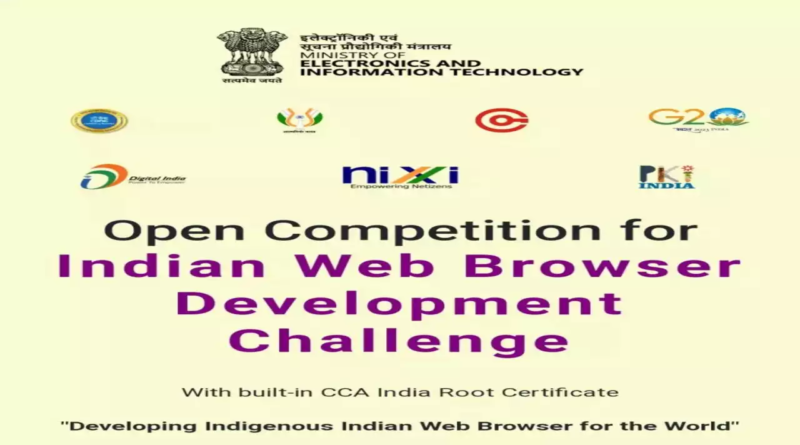India Web Browser Development Challenge |Ias Banenge
Context:
The Ministry of Electronics and Information Technology (MeitY) recently launched the Indian Web Browser Development Challenge (IWBDC).
Relevance:
GS III: Science and Technology
READ MORE – Landmark Reforms: Centre Set to Modernize British-Era IPC, CrPC, and Evidence Act”- IAS Banenge
Dimensions of the Article:
- India Web Browser Development Challenge (IWBDC)
- Controller of Certifying Authorities (CCA)
India Web Browser Development Challenge (IWBDC)
- MeitY, in partnership with the Controller of Certifying Authorities (CCA) and C-DAC Bangalore, drives the India Web Browser Development Challenge.
- The challenge aims to inspire tech enthusiasts, innovators, and developers across India to create a native web browser.
Challenge’s Aim:
- Encourage the creation of a homegrown web browser.
- The browser should establish its own trust store, employ a root certificate from India’s CCA, and offer advanced functionalities alongside robust security and data privacy features.
Incentive:
- The government has introduced a cash prize of Rs 3.4 crores for the developers, motivating their active participation.
Eligibility Criteria:
- Indian Tech Start-ups, MSMEs, Companies, and LLPs registered under the Companies Act 2013 in India can apply.
- The entity should possess at least 51% shareholding by Indian citizens or persons of Indian origin.
- The applicant’s entity should not be a subsidiary of any foreign corporation.
- Individuals can apply with a group of 3 to 7 members, while other entities should apply under the “organization” category.
Desired Browser Attributes:
- The browser must be compatible with various platforms like iOS, Android, and Desktop.
- Inclusion of built-in accessibility support is crucial.
- The browser should facilitate document digital signing using a crypto token.
- Incorporation of parental control and a web filter for child-friendly browsing is essential.
- Support for Web3 and compliance with W3C standards are expected.
- Native support for all official Indian languages should be present.
Controller of Certifying Authorities (CCA)
- The Controller of Certifying Authorities (CCA) is established under the provisions of the Information Technology Act 2000 (IT Act).
Regulatory Mandate:
- The primary function of the CCA is to license and oversee the operations of Certifying Authorities (CAs).
- CAs are entities responsible for issuing digital signature certificates used for electronic user authentication.
National Repository of Digital Certificates (NRDC):
- CCA maintains the National Repository of Digital Certificates (NRDC), housing certificates issued by all CAs across the nation.
- NRDC plays a pivotal role in managing and ensuring the integrity of digital signatures.
Promotion of Digital Signatures:
- CCA’s mission is to bolster the expansion of e-Commerce and e-Governance by promoting widespread adoption of digital signatures.
- Digital signatures play a vital role in ensuring secure and trustworthy electronic transactions and communications.
Appointment and Authority:
- The Controller of Certifying Authorities (CCA) is appointed by the Central Government, as per section 17 of the IT Act.
-Source: The Economic Times





Pingback: About Earendel |Ias Banenge